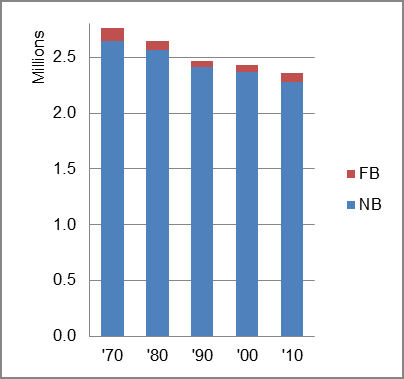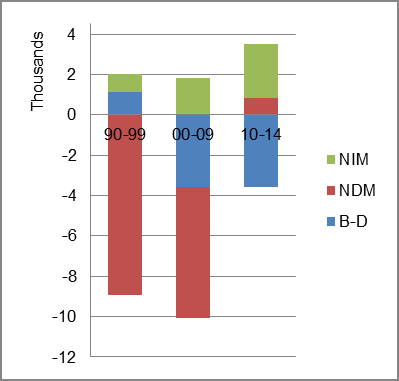
The foreign-born (FB) population decreased from 116,140 in 1970 to 73,786 in 2010. That was a decrease of 36.5 percent. The foreign-born share changed from 4.2 percent to 3.1 percent.
The share of the overall population that was native-born (NB) decreased by 13.6 percent.
Pittsburgh MSA: Population 1970-2010
The first chart below shows the three population change factors for three periods adjusted for annual average amounts. International migration (NIM) was the only factor consistently adding population in all three periods, but B-D added a larger share in the first period.
The second chart shows the same data but with an adjustment to reflect births to immigrants shifted to NIM. In it, NIM remained the only consistent factor adding population and the largest factor in all three periods.
Pittsburgh MSA: Sources of Population Change 1990-2014 Pittsburgh MSA: Sources of Population Change (Adjusted) 1990-2014
B-D NDM NIM B-D NDM NIM 90-'99 56.3% neg. 43.7% 90-'99 0.9% neg. 99.1% 00-'09 neg. neg. all 00-'09 neg. neg. all 10-'14 neg. 23.9% 76.1% 10-'14 neg. 18.2% 81.9%
1/ Allegheny, Armstrong, Beaver, Butler, Fayette, Washington, and Westmoreland counties.
MSA Factsheets by state, and alphabetically.